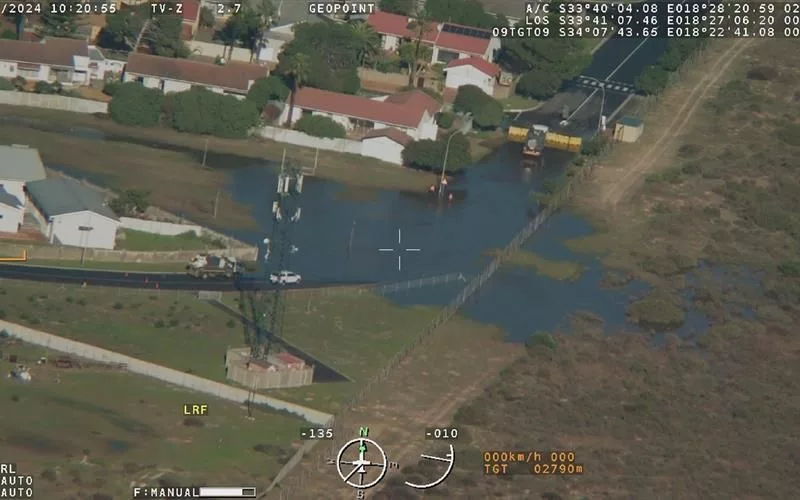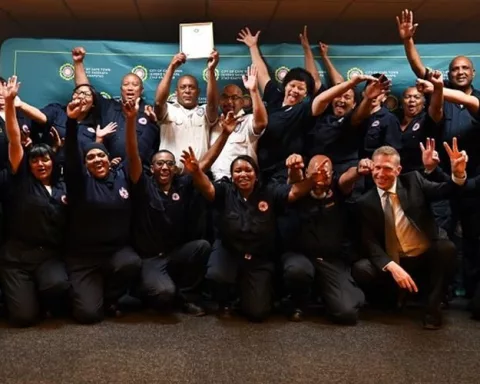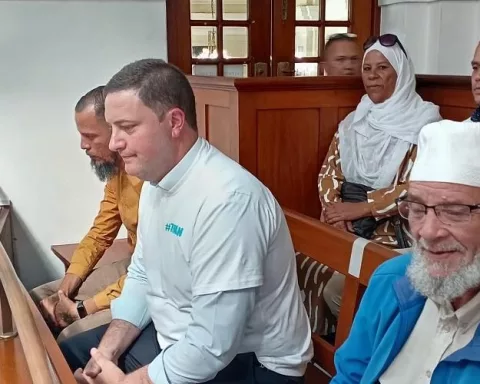Winter in Cape Town was tough in 2023-2024, with record rainfall and strong winds affecting over 167,000 people and damaging many homes. As the chill fades, the city’s Disaster Risk Management Centre stays alert, using new technology to help respond to future storms. Numerous organizations stepped up to provide aid, serving hot meals and distributing blankets to those in need. This challenging season taught Cape Town valuable lessons about community strength and the importance of being prepared for whatever nature throws its way. As the city looks ahead, its spirit of resilience shines bright, ready to face new challenges together.
What were the main challenges Cape Town faced during winter 2023-2024?
Cape Town experienced unprecedented rainfall and extreme weather events during winter 2023-2024, impacting over 167,000 people and damaging around 52,000 structures. The city’s Disaster Risk Management Centre employed advanced technology and collaborated with humanitarian organizations to effectively respond to these challenges.
Seasonal Transition in Cape Town
As winter’s grip begins to loosen over Cape Town, residents eagerly pack away heavy blankets, heaters, and thick jerseys that have been their everyday essentials. Despite the city’s shift towards milder weather, the Disaster Risk Management Centre (DRMC) remains vigilant. Their team continues to hold cross-departmental winter task force meetings, reviewing the events of the past season and planning for future contingencies.
The winter of 2023-2024 posed significant challenges. The forecast initially suggested less rainfall and higher temperatures than average. However, the South African Weather Service also highlighted the potential for extreme weather. Their warnings materialized in early July when unprecedented rainfall levels shattered the city’s long-term records, accompanied by destructive winds that caused widespread damage.
The extent of this winter’s impact was severe. Between July and September 2023, the DRMC documented approximately 10,000 affected structures and over 20,000 individuals impacted by severe weather. A detailed impact assessment revealed that 788 areas were affected, involving about 52,000 structures and impacting nearly 167,000 people. This marked an eight-fold increase in the number of affected individuals compared to the previous year.
Unyielding Response and Technological Innovations
Alderman JP Smith, the Mayoral Committee Member for Safety and Security, voiced his concerns over the severe weather events. He acknowledged the difficulty in counteracting such extreme conditions and the extended recovery times needed. “The more extreme the weather event, the more difficult it is to mitigate against it, and the longer the recovery period,” Smith stated. He also underscored the importance of continuous debrief sessions and proactive strategies to bolster the city’s response to future extreme events.
One significant improvement in the city’s response was the employment of new information, surveillance, and reconnaissance (ISR) craft. These advanced tools were instrumental in monitoring and responding to floods during the winter. The city plans to extend their use, highlighting a commitment to using technology to handle natural disasters effectively.
However, technology alone cannot address all challenges. The humanitarian aspect of disaster response remains crucial. During the harsh winter months, the city’s humanitarian relief partners sprang into action, providing essential aid to those affected. Around 150,000 hot meals were served, 22,000 blankets distributed, over 4,000 beanies handed out, and nearly 10,000 hygiene packs given to individuals in need.
Collaborative Efforts and Community Resilience
These relief efforts were facilitated by a coalition of dedicated organizations, including Al Imdaad, Ashraful Aid Foundation, Gift of the Givers, Islamic Relief, Respond Organisation, Mother City Kitchen, Mustadafin Foundation, the Salvation Army, and the Red Cross Society. Their combined efforts exemplify the spirit of community and solidarity that characterizes Cape Town.
Alderman Smith expressed his gratitude to these organizations, recognizing that the change of seasons does not provide much respite for emergency and disaster response teams. The summer’s south-easterly winds bring a heightened fire risk, potentially as destructive as winter floods. “The reality is that the change of season doesn’t bring much respite for our emergency and disaster response agencies,” Smith observed. He urged continued support for the non-profit organizations working tirelessly year-round to help those in need.
Cape Town’s experience this past winter highlights the unpredictable nature of regional weather patterns, reflecting a broader global trend of increasing weather volatility. The city’s response, integrating both high-tech solutions and strong community support, serves as a model for other urban centers facing similar challenges.
Reflection and Future Preparedness
Reflecting on the artistic and historical context, one might recall the Romantic era’s depiction of nature’s sublime power—both beautiful and terrifying. Artists like J.M.W. Turner often portrayed the raw force of natural elements in their works. Turner’s tempestuous seascapes and stormy skies capture the awe-inspiring, yet often destructive, power of nature. Similarly, Cape Town’s recent winter serves as a modern reminder of our vulnerability to natural forces, compelling us to respect and prepare for their unpredictable might.
The notion of community resilience also brings to mind the Stoic philosophy of ancient Rome. Stoicism teaches the importance of preparing for adversity, cultivating inner strength, and supporting one another in times of crisis. This philosophical approach resonates with Cape Town’s efforts to build resilience against extreme weather events. The city’s proactive measures, technological innovations, and community-based support systems reflect a Stoic understanding of facing and overcoming challenges.
As Cape Town moves forward, the lessons learned from this winter will inform future strategies. The city will likely continue to refine its disaster response plans, incorporating both modern technology and the timeless wisdom of community solidarity. This dual approach not only enhances the city’s ability to weather future storms but also strengthens the social fabric that binds its residents together.
While the immediate threat of winter has passed, the ongoing efforts to mitigate and respond to natural disasters remain crucial. Cape Town’s experience serves as a poignant reminder of the importance of preparedness, technological innovation, and community support in navigating the challenges posed by an ever-changing climate. The city’s resilience and adaptability offer hope and inspiration to others facing similar trials, demonstrating that even in the face of nature’s formidable power, human ingenuity and solidarity can prevail.
“`markdown
What challenges did Cape Town face during the winter of 2023-2024?
Cape Town faced unprecedented rainfall and extreme weather conditions, impacting over 167,000 people and damaging around 52,000 structures. The city’s Disaster Risk Management Centre (DRMC) utilized advanced technology and collaborated with humanitarian organizations to address these challenges effectively.
How did the city respond to the extreme weather events?
The Disaster Risk Management Centre employed new information, surveillance, and reconnaissance (ISR) tools to monitor and respond to floods. Moreover, humanitarian partners provided essential aid, serving approximately 150,000 hot meals, distributing 22,000 blankets, and offering hygiene packs to those in need during the harsh winter months.
Which organizations were involved in the humanitarian relief efforts?
A coalition of dedicated organizations played a crucial role in the humanitarian response, including Al Imdaad, Ashraful Aid Foundation, Gift of the Givers, Islamic Relief, Respond Organisation, Mother City Kitchen, Mustadafin Foundation, the Salvation Army, and the Red Cross Society. Their efforts exemplified community solidarity and resilience.
What lessons did Cape Town learn from this winter season?
The city learned valuable lessons about the importance of community strength, preparedness, and the need for ongoing collaboration in response to natural disasters. These lessons will inform future strategies aimed at enhancing the city’s resilience against extreme weather events.
How does Cape Town plan to prepare for future disasters?
Cape Town intends to continue refining its disaster response plans by integrating modern technology along with community-based support systems. Regular debrief sessions and task force meetings will ensure that the city remains vigilant and ready to tackle future challenges.
What is the long-term outlook for Cape Town regarding weather-related challenges?
While winter’s immediate threat has passed, Cape Town’s experience highlights the unpredictable nature of weather patterns exacerbated by climate change. The city is committed to ongoing preparedness, technological innovation, and community support to navigate the challenges posed by an ever-changing climate.
“`












